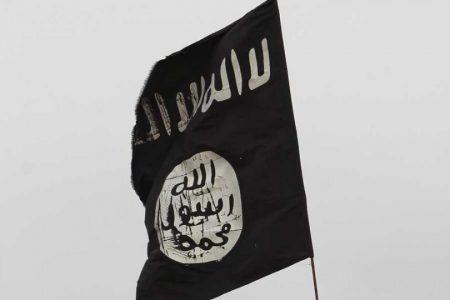
Pakistan Summit Tackles Growing Threat Posed By ISIS In Afghanistan
Twenty-four hours after U.S. Secretary of State Mike Pompeo last week made a surprise visit to Afghanistan where he vowed to support President Ashraf Ghani’s bid to launch peace talks with the Taliban, key intelligence officials of four regional powers met in Islamabad to address the threat posed by Islamic State.
Perturbed by the growing strength of ISIS in Afghanistan, in particular, officials from Pakistan, Russia, China and Iran met to discuss and formulate counter-terrorism strategies. Participants agreed to enhance an existing mechanism to deal with ISIS, which has enhanced its presence and capabilities in the region as its fighters seek to regroup, and recruit new members, after having been ousted from Iraq and Syria.
While the countries involved already are to varying degrees engaged in the fight against ISIS, Russian President Putin has become more vocal about the potential for the terrorist group to penetrate Russian territory via central Asian states. To this end, Sergei Naryshkin, chief of Russia’s Foreign Intelligence Service, attended the summit, which followed months of accusations by Moscow that Washington is supporting ISIS in Afghanistan.
“The participants of the conference agreed to cooperate to prevent the trickling of ISIS terrorists from Syria and Iraq to Afghanistan where from they would pose risks for neighboring countries,” a spokesperson for the Russian Foreign Intelligence Service’s press bureau was quoted as saying.
While the Pakistani government did not release an official statement on the proceedings, a senior official at the Ministry of Foreign Affairs conveyed to The Media Line that “the meeting was kept top secret for security concerns. I can only confirm,” the source expounded, “that spymasters did converge on Islamabad to discuss coordinating efforts to make the region secure and safe. Participants of the meeting stressed the need to settle the conflict in Afghanistan.”
Many in Pakistan have highlighted that the gathering of intelligence heads from four countries that often competed during the Cold War-era was itself big news.
“What necessitated this paradigm shift is clearly the lingering conflict in Afghanistan,” The Express Tribune, one of Pakistan’s most prestigious daily newspapers, proffered in an editorial following the summit. “Pakistan and China may not have said it publicly but Russia and Iran are quite forthcoming in pointing a finger at the U.S. for being behind the rise of Daesh [Islamic State] in Afghanistan.
“It is because of this reason that Russia, Iran and China have now all maintained contacts with the Afghan Taliban,” the article continued. “These countries believe that the Afghan Taliban can serve as a bulwark against the more lethal Daesh. That is why there is consensus among all the regional players that there has to be a peace deal between the Afghan government and the Taliban.”
For its part, ISIS responded to the meeting with a literal bang. On Thursday, members of the terrorist group attacked an election rally in Pakistan’s Baluchistan province, killing some 130 people and injuring more than 200, the deadliest attack in the Muslim-majority nation this year.
“Attempts of inimical forces to derail important democratic activity shall not succeed. United we all Pakistanis shall IA [God Willing] defeat [ISIS],” a spokesperson for the Pakistani army subsequently wrote in a Twitter message.
In response, Pakistan’s caretaker government announced that Monday would be a national “day of mourning.”
General elections are scheduled to be held in Pakistan on July 25.
ISIS, in conjunction with the Taliban, launched its first attack in the country on August 8, 2016, killing at least 70 people in Quetta, which borders both war-torn Afghanistan and Iran. ISIS struck again in Quetta just two months later, this time targeting a police training college, where 62 people were killed and more than 165 others injured. The Pakistan-based Lashkar-e-Jhangvi group shared responsibility for the attack.
Since then, ISIS has become emboldened and in February last year perpetrated a suicide bombing at a Sufi shrine in Sindh Province, killing more than one hundred people. An official document compiled by Pakistan’s Home Ministry, a copy of which was obtained by The Media Line, revealed that ISIS was also responsible for an August 2017 attack on a Pakistani military convoy in Quetta, which killed 15 people, including eight soldiers.
Since then, ISIS has killed 415 people and injured over 600 others across Pakistan.
And now reports suggest that ISIS fighters from Iraq and Syria are joining the terror group’s Pakistani branch.
“The meeting of intelligence officials is thus good news,” Mustansar Abbas, an Islamabad-based security analyst asserted to The Media Line. “It is high time for regional cooperation to counter ISIS.”
Source: themedialine





